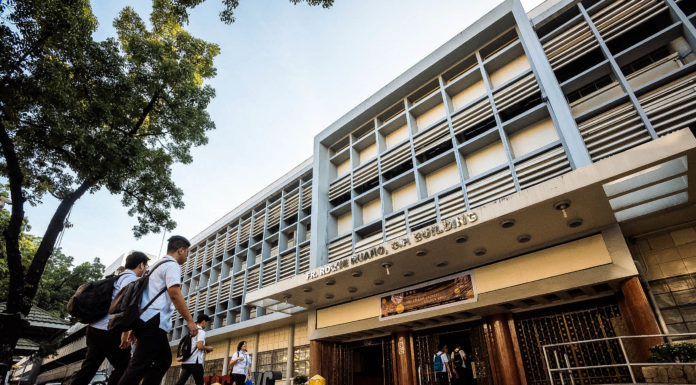Towards the end of 2005, UST Center for Drug Research, Evaluation, and Studies (UST-Cedres), dubbed as the country’s most advanced pharmaceutical research center, has opened its doors to international clients from South America, Bangladesh, and Asean countries like Indonesia, Thailand, and Malaysia, to serve the needs of both the academe and pharmaceutical industry for drug research, evaluation, and studies.
“Hopefully, by 2008, everything would have been put into proper place so that when the drugs are sold, imported or exported within Asian countries, countries would not have to undergo various testing procedures anymore,” said Benjamin Co, UST-Cedres’s executive director. “Not having to undergo various procedures is more cost-effective.”
UST-Cedres was formed in 2004 as a joint venture between the University and pharmaceutical giant United Laboratories through the latter’s subsidiary, Chemfields Inc. “Having a multinational company in a joint venture opens the door for more researches on the pharmaceutical business,” Co told the Varsitarian.
Main task
Drugs which manufacturers cannot lay claim proprietary rights on are being vastly marketed in the Asean. As replicates of these off-patent drugs in the market increase, consumers must have ways to recognize drug quality in legal terms.
Bioequivalent drugs are drugs marketed corresponding to the standard. An example of the drugs that has bioequivalence problems is the anti-tuberculosis drug, rifampicin. Other similar drugs in the market account for 68 other generic brands. However, because of bioequivalence problems, consumers are not assured that similar generic products have the same quality as the standard.
UST-Cedres tests the equality of off-patent drugs to their standards as bioequivalents, to ensure cost-effectiveness and consumer safety.
“If (a company) wants to go off-patent, everybody wants to make a similar drug. It is now (UST-Cedres’) duty to assure the quality of generic drugs in the Philippines. We test on human subjects the off-patent generic drugs (which) have bioequivalence problems,” Co said.
According to Co, if a drug is still under patent, prospective players who might want to market their own brand of the drug should have their brand tested, as mandated by the Bureau of Food and Drugs.
UST-Cedres is capable of conducting over 60 drug studies a year, which complies with World Health Organization’s standards.
Drug testing of UST-Cedres branches into various components like pharmacokinetic studies, a study on the time course of drug levels in the body and the mathematical relationships of the data interpretations.
UST-Cedres, formerly the bioavailability unit of the UST Hospital, intends to go into further researches and studies on herbal preparations in the future, Co said.
“Later on, probably, we will do finding the active components of the herbal preparations. (But) our business now is to check first for drug quality assurance. We all have our hands full already, we are just making sure that we have quality drugs in the market,” Co said.
UST-Cedres, is one of only three pharmaceutical research centers in the Philippines. The other two centers are United Laboratories in Mandaluyong and De La Salle University’s Angelo King Medical Research Center in Dasmariñas, Cavite. Laurence John R. Morales














